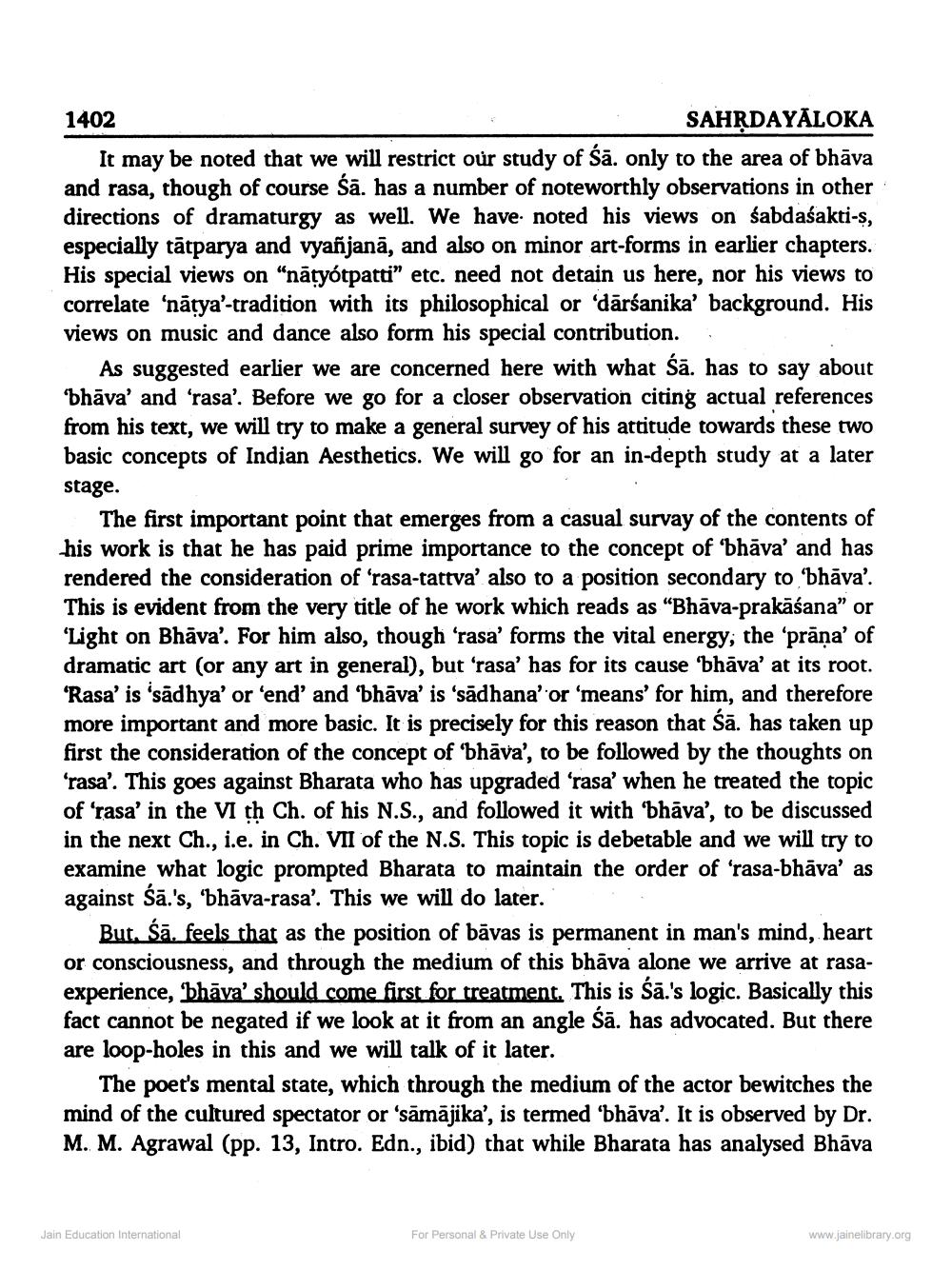________________
1402
SAHṚDAYALOKA
It may be noted that we will restrict our study of Śa. only to the area of bhāva and rasa, though of course Śa. has a number of noteworthly observations in other directions of dramaturgy as well. We have noted his views on sabdaśakti-s, especially tatparya and vyañjana, and also on minor art-forms in earlier chapters. His special views on "natyótpatti" etc. need not detain us here, nor his views to correlate 'natya'-tradition with its philosophical or 'dārśanika' background. His views on music and dance also form his special contribution.
As suggested earlier we are concerned here with what Śā. has to say about 'bhāva' and 'rasa'. Before we go for a closer observation citing actual references from his text, we will try to make a general survey of his attitude towards these two basic concepts of Indian Aesthetics. We will go for an in-depth study at a later stage.
The first important point that emerges from a casual survay of the contents of his work is that he has paid prime importance to the concept of 'bhāva' and has rendered the consideration of 'rasa-tattva' also to a position secondary to 'bhāva'. This is evident from the very title of he work which reads as "Bhāva-prakāśana" or 'Light on Bhāva'. For him also, though 'rasa' forms the vital energy, the 'prāṇa' of dramatic art (or any art in general), but 'rasa' has for its cause 'bhāva' at its root. 'Rasa' is 'sadhya' or 'end' and 'bhava' is 'sādhana' or 'means' for him, and therefore more important and more basic. It is precisely for this reason that Śā. has taken up first the consideration of the concept of 'bhāva', to be followed by the thoughts on 'rasa'. This goes against Bharata who has upgraded 'rasa' when he treated the topic of 'rasa' in the VI th Ch. of his N.S., and followed it with 'bhāva', to be discussed in the next Ch., i.e. in Ch. VII of the N.S. This topic is debetable and we will try to examine what logic prompted Bharata to maintain the order of 'rasa-bhāva' as against Śā.'s, 'bhāva-rasa'. This we will do later.
But. Śā. feels that as the position of bāvas is permanent in man's mind, heart or consciousness, and through the medium of this bhava alone we arrive at rasaexperience, 'bhāva' should come first for treatment. This is Śa.'s logic. Basically this fact cannot be negated if we look at it from an angle Śā. has advocated. But there are loop-holes in this and we will talk of it later.
The poet's mental state, which through the medium of the actor bewitches the mind of the cultured spectator or 'sāmājika', is termed 'bhava'. It is observed by Dr. M. M. Agrawal (pp. 13, Intro. Edn., ibid) that while Bharata has analysed Bhāva
Jain Education International
For Personal & Private Use Only
www.jainelibrary.org




